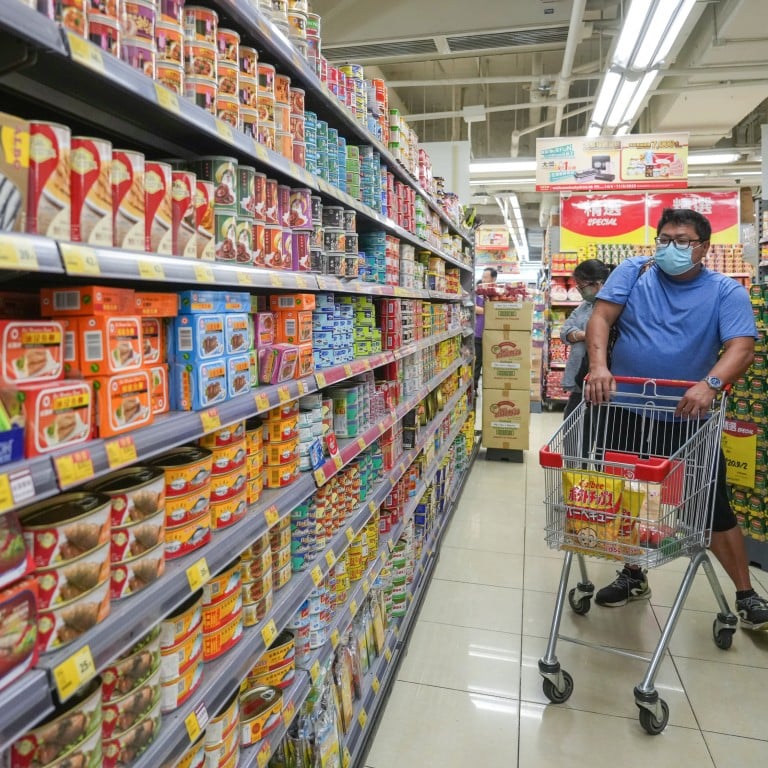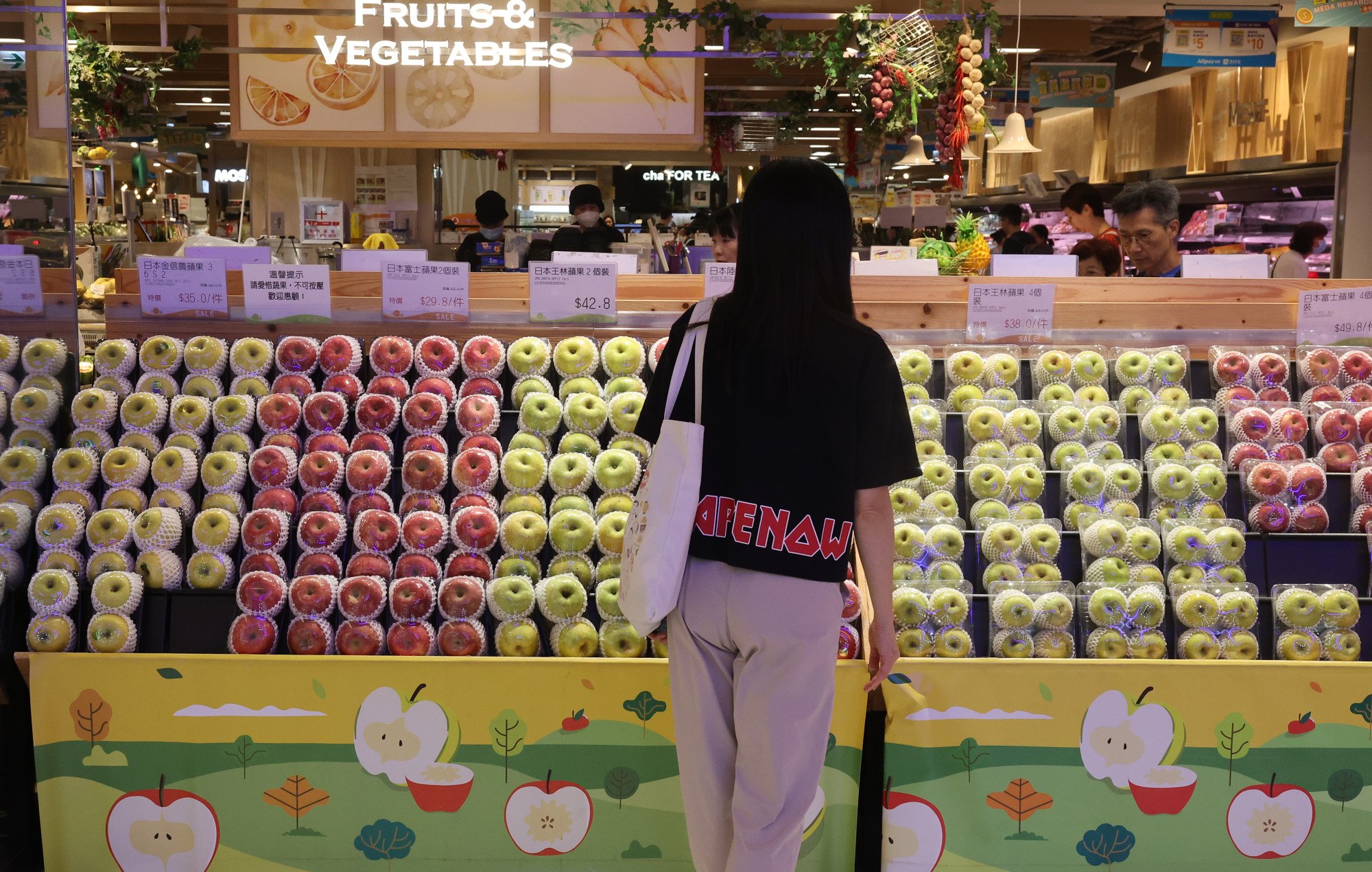
Average cost of Hong Kong supermarket goods went up by 1.9% last year, Consumer Council finds
- Prices of confectionery, biscuits and snacks rose by 9.9 per cent in 2023, Consumer Council says
- Eggs also went up in price by 10.6 per cent last year, due to bird flu outbreaks in some countries
But the Consumer Council said in its annual report on grocery prices on Monday that last year’s increase was lower than in 2022 and that the price of some staples had stabilised since the Covid-19 pandemic.
“The price of some supermarket goods showed a gentler rise or even decline, but certain products continued to soar in price due to tight supply chains caused by various factors,” Victor Lam Hoi-cheung, the council’s publicity and community relations committee chairman, said.
“The council reminds supermarket groups to continue to uphold their social responsibility and stay competitive … they ought to carefully consider the necessity and extent of price increases.”

The council, which used electronic scanner information from a basket of 300 products across three major supermarket chains, found that the aggregate average price of goods had gone up by just under 2 per cent.
The confectionery, biscuits and snacks category logged the biggest jump at 9.9 per cent. The increase was largely driven by chocolate and confectionery, which saw average prices increase by 23.7 per cent.
“This was due to poor harvests in certain major cocoa-producing countries and as a result of the adverse weather conditions, among other factors, which led to a surge in cocoa bean prices,” Lam said.
The 2023 increase was lower than the 2.1 per cent jump in prices logged in 2022 and the 2.1 per cent increase in the composite consumer price index for the same period.
The index is announced by the government every year and reflects changes in the prices of consumer goods and services.
The three chains surveyed were ParknShop, Wellcome and Aeon.
The council said that outbreaks of bird flu in Japan, the United States and other countries were responsible for a tighter egg supply in Hong Kong. The overall cost of eggs went up by 10.6 per cent.
But eggs from Japan and Australia jumped in price by between 15 and 16.7 per cent.
The baby product category – which covers infant formula, food and diapers – showed the second-highest price increase at 5.4 per cent.
The council said that the cost of baby food in particular had increased for two years in a row – up 3.9 per cent in 2023 and 5.3 per cent in 2022.
But there was some relief last year for products that were hoarded at the height of the Covid-19 pandemic, such as staples, which includes rice, some grains and oils, and canned and frozen foods.
The staple foods category recorded a price drop of 0.3 per cent last year, with packaged rice falling 2.6 per cent compared with a 1.3 per cent increase in 2022.
Hong Kong consumer watchdog calls for vigilance over private care homes fees
Frozen food prices were down 0.1 per cent last year after a 3.5 per cent increase in 2022, and the cost of canned foods went down 0.7 per cent compared with an increase of 4.6 per cent over the year before.
But the council said the price of individual products could still fluctuate widely.
Even though most cooking oil products recorded price drops, one type saw its price rise by 29.7 per cent to HK$82 (US$27).
Canned soup and vegetables went down by 1.5 per cent, but one brand of canned corn shot up in price by 13.5 per cent to HK$10.10.
Gilly Wong Fung-han, the council’s chief executive, advised the public to shop around and compare prices “smartly” to get the best deals.
Potential carcinogens found in 90% of instant noodles: Hong Kong watchdog
ParknShop said that a shortage of raw materials was the “main factor” in driving prices higher for some products but highlighted that other items had recorded decreases in cost.
The supermarket chain added that, amid changing consumer behaviour and the rise in cross-border shopping in mainland China, it would continue to give customers additional discount options.
Wellcome said it was “committed to providing high-quality and value-for-money products,” and that it would carry on with efforts to improve its global procurement network in the face of rising transport costs and prices.
Aeon also said it would continue to develop its logistics and procurement systems to “reduce and freeze” prices and added it had launched a variety of price discount programmes for customers last year.

